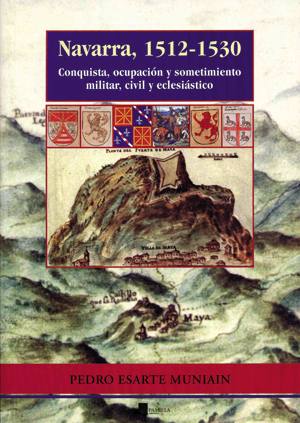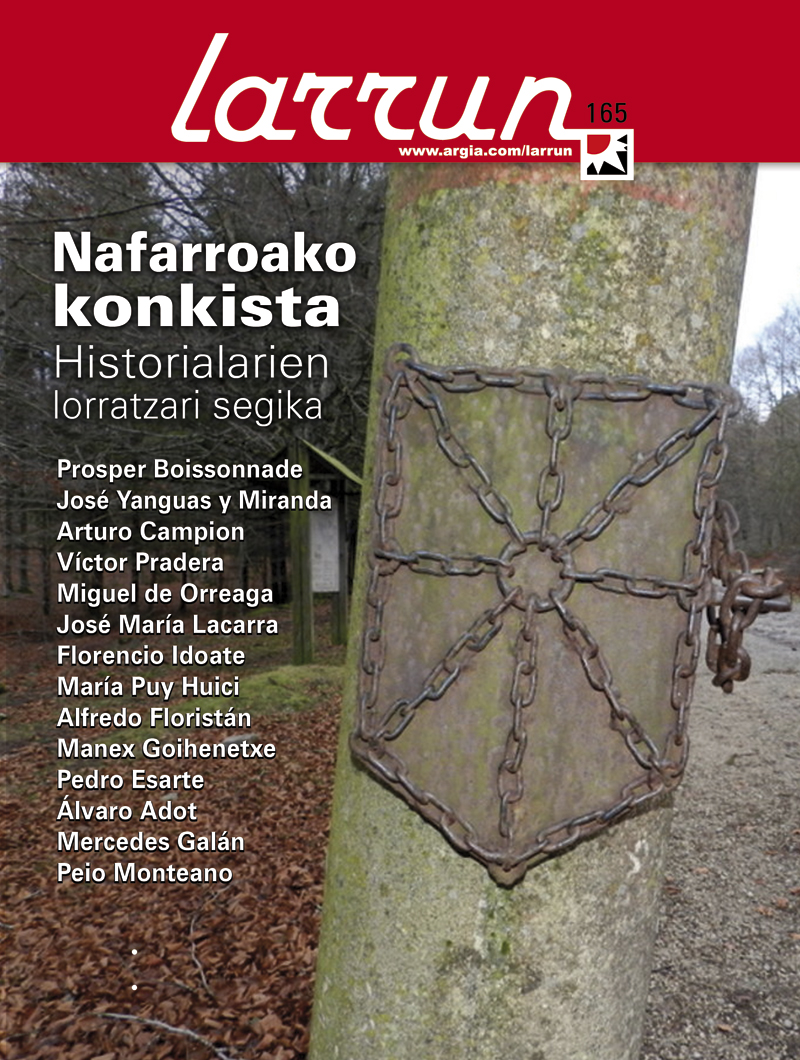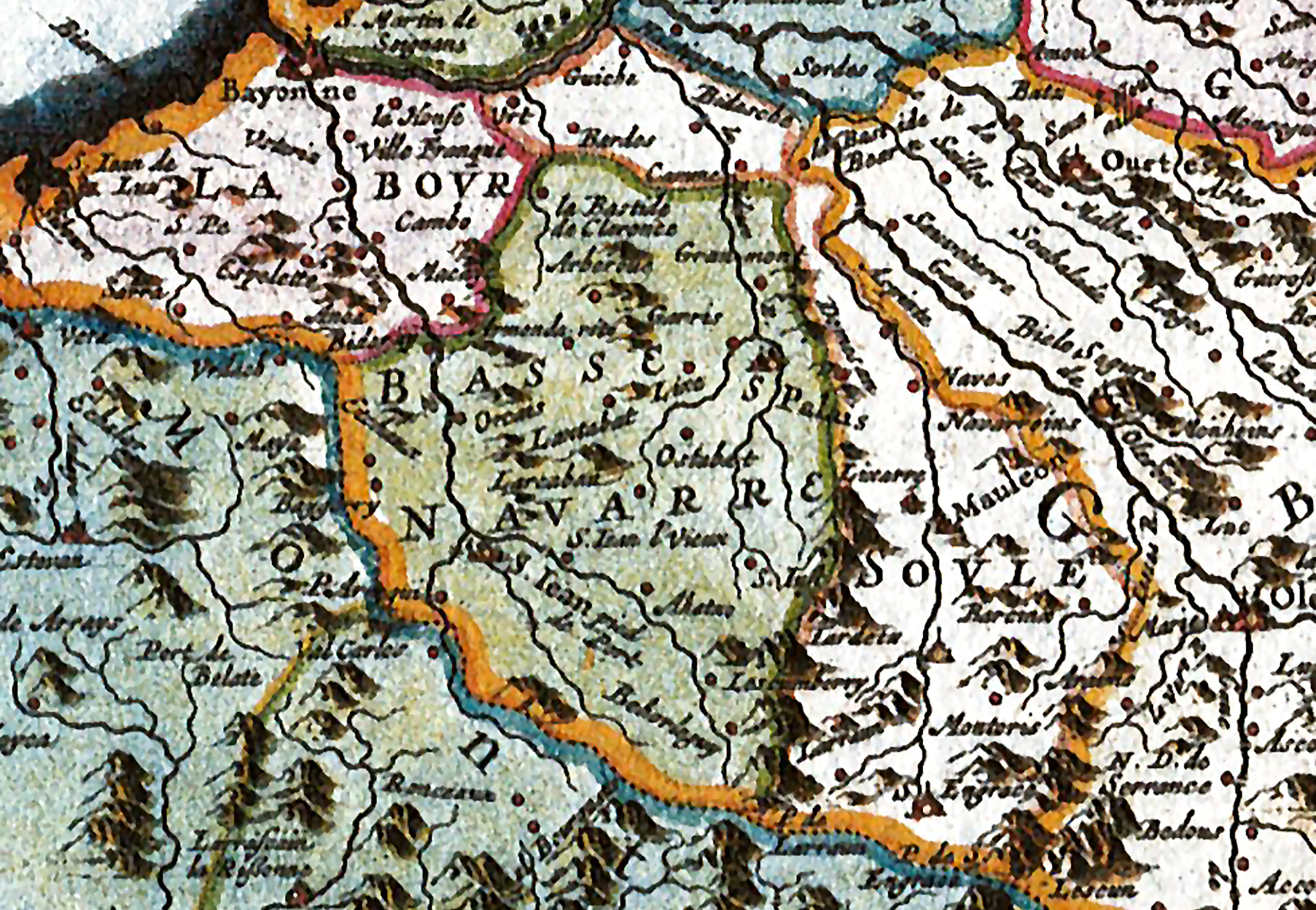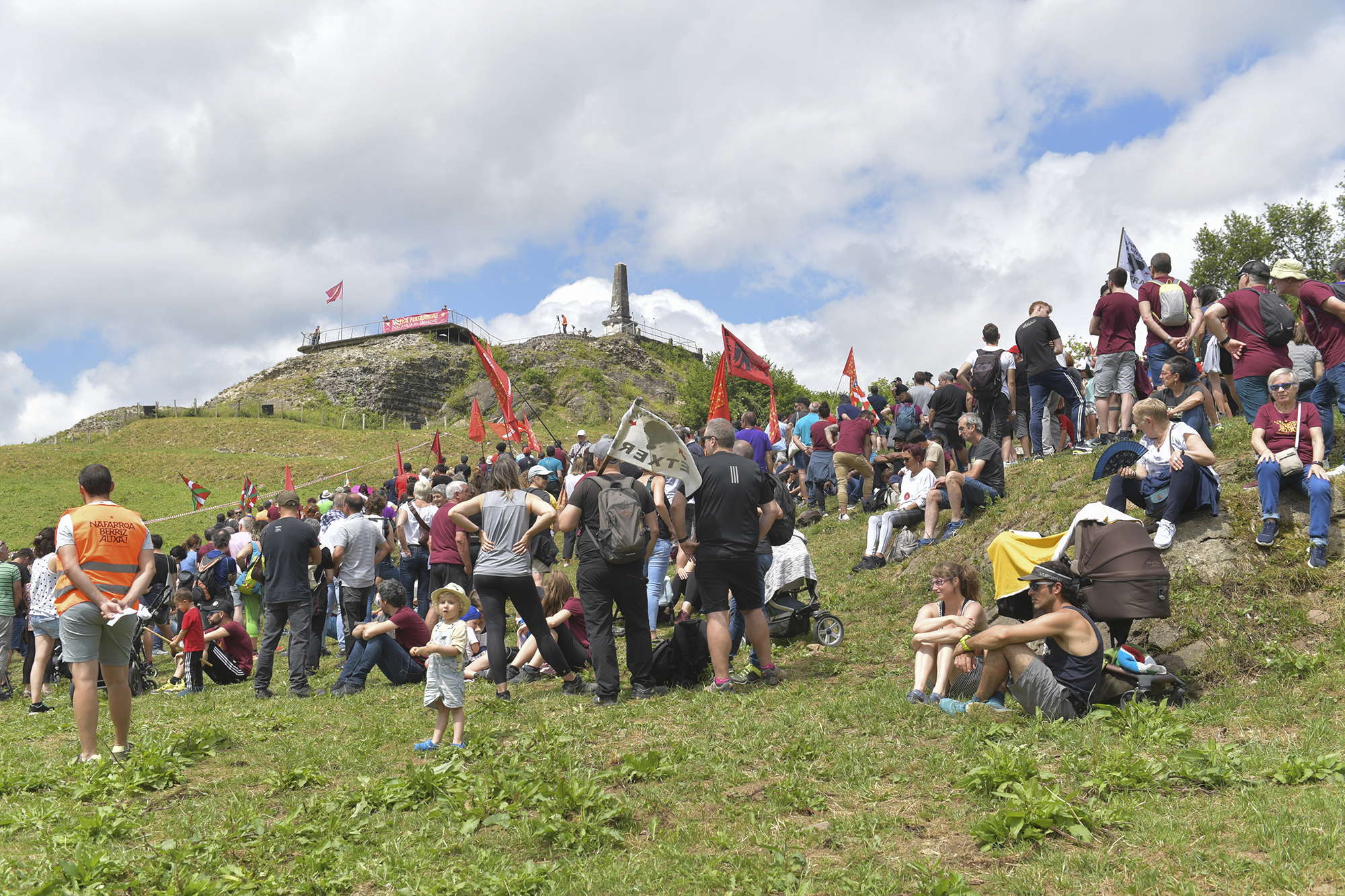"For the imperial monarchy there was no Navarro without assimilating"

He is a historian of profession, of profession, of butcher and of hobby. He was mayor of Elizondo in 1977 and also Juntero in the Baztan Valley. He approached history by exploring the property of the mountains in the area. He has written numerous books and articles relating to the conquest of Navarre, many of them against the official line drawn up by the Government of Navarre. He has made his views known through the Nabarralde and Nafarroa Bizirik associations 1512-2012.
In 2001, Pedro Esarte marked a landmark in the historiography of the conquest of Navarra. From the hand of the editorial Pamiela, Navarra, 1512-1530. Conquest, occupation and military, civil and ecclesiastical support. It is an extensive work of 900 pages and 2,641 additional footnotes. Since Boissonnna wrote his chronicle in the 19th century, it is difficult to find deeper work on this topic.
Esarte makes a special contribution to Navarra, 1512-1530. For twenty years he has researched archival documents that have been second-rate for historians and, above all, he has drunk from notarial protocols. In this way, it has managed to gather the testimonies and opinions of the citizens of Navarros, the protagonists of the conquest that they suffered last year. Through causes, demands, complaints, contracts and other documentation, the book shows that Navarre was conquered and conquered, and serves to gather the resistance of the Navarros and the repression suffered.
In 2011, Pamiela published a 204 page summary of her original book, entitled Brief history of the invasion of Navarre, by historian Aitor Pescador. For Pescador, the 2001 book is “a golden vein”, because of the amount of information it contains and, above all, because it counts “the conquest seen by the Navarros, suffered by the Navarros”. The following text has been taken from the book Navarra 1512-1530.
“To pretend to justify the loss of independence of Navarre, claiming as an excuse the internal struggles between the beaumontans and the agramontes or referring to the situation in which modern states were found, is to give the reasons that distort those facts; the imperial monarchy that wanted to dominate the world, as well as the excessive, the crimes and expolies committed by its troops, supporters and collaborators, are aimed at getting rid of precisely aggrievously. (…)
The suspicion and suspicion that the Navarros would rebel against the burden imposed on them remained. It is sad to see that the natives of the kingdom of Navarre were not considered as Navarros until they swore obedience and slavery.
For the imperial monarchy there were never Navarros without assimilation. To do so, it was not enough to swear loyalty and obedience, but they were also required to individually claim self-guilt and forgiveness.”
Immersed in the war against the community lords and churches, in 1521, Castile obtained the help of his brother-in-law Enrique de Navarra II.ak, King Francisco I of France, to recover the kingdom of Navarre invaded, conquered and occupied nine years earlier.
Parents Enrike... [+]
Memoria eta aldarrikapen eguna izan da larunbatean Amikuzeko hiriburuan. "Sekulan baino gehiago, gure izanetik aurkitu indarraz, bihar gu girena hazi", izan dira Zabalik elkarteko presidentearen hitzak, Nafarroa Bizirik eguneko ekitaldi ofizialean.
The ideological heirs of the conquerors of the Kingdom of Navarra are today the political parties that manage means such as patriarchal intellectual production and EITB. These heirs continue with the colonization process of Navarre, distorting historical contexts and negating... [+]
The castle of Amaiur (1522), in Baztán, was the last strength of the resistance against the Spanish conquest of the Kingdom of Navarra. The rebels, with their courage, also dominated the kingdom of Spain, challenged by their hearts, sought to rise up against the... [+]
You will easily see Spaniards of a certain age who want to underestimate or reduce the severity of something: “More was lost in Cuba,” recalling the loss of the remains of the colonial empire in 1898. Hungarians also have a similar expression, which is used in the same sense... [+]




















